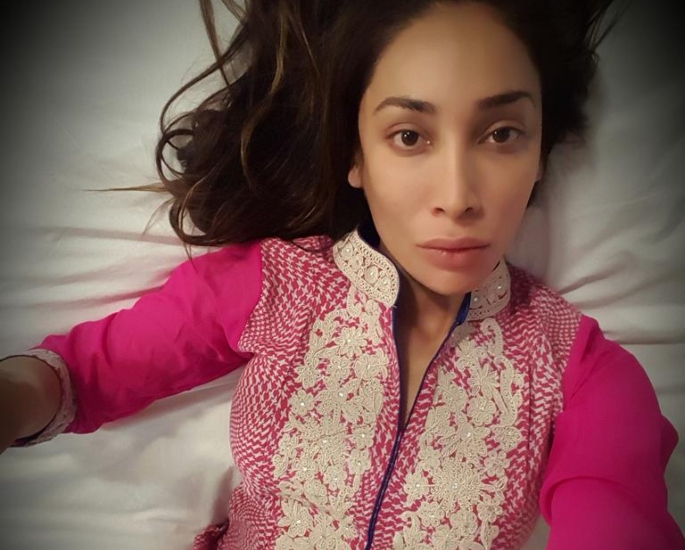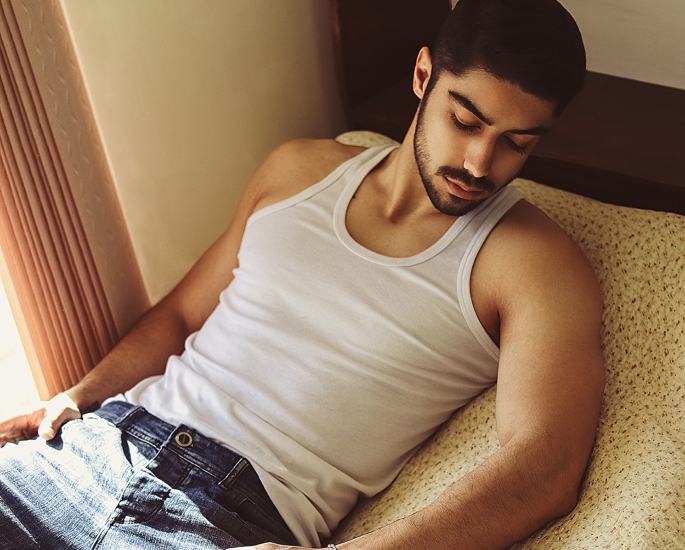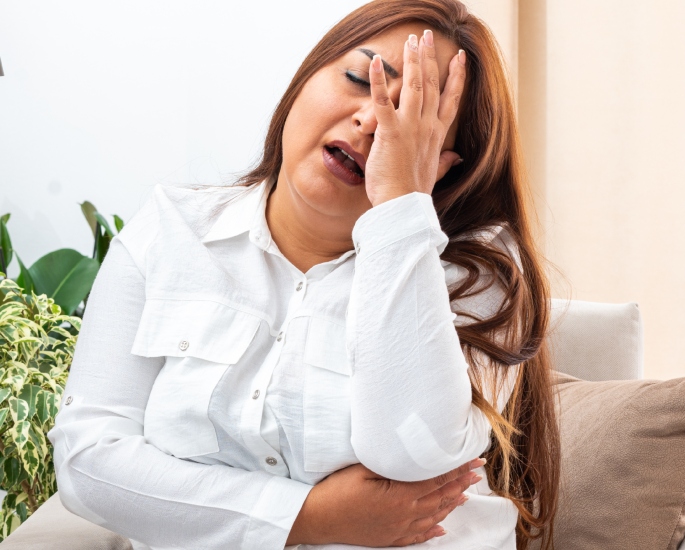"I'm tired of Asian culture sexualising everything"
In the diverse tapestry of South Asian culture, what you wear serves as more than just a means of self-expression; it is a reflection of values, traditions, and societal norms.
When it comes to the attire of children, particularly girls, the influence of parents is often paramount.
In the modern era, where fashion trends can vary from conservative to revealing, a fascinating debate arises regarding what is deemed acceptable to wear in front of South Asian parents.
The clash between mild and daring outfits highlights the enduring influence of parents over their children’s clothing choices.
It leads to many kids begging the question, “what can I wear in front of Desi parents?”.
By speaking to individuals who are experiencing this thought and others who have lived through it, we explore the effect of such a topic.
Should I Cover Up?

Modesty is seen as a way to preserve an individual’s respect and dignity, particularly for women.
Modest clothing choices are believed to protect one’s honor and integrity by preventing unwanted attention and showcasing a sense of self-worth.
By adhering to modest fashion, South Asian individuals seek to maintain a dignified presence within their communities.
To get a better insight into this, we spoke to some women about their experiences.
Safiya Ahmed a 23-year-old teacher from Birmingham explained:
“Growing up in Bangladesh, I’ve always felt the pressure to cover myself up in front of my parents.
“They firmly believe that modesty is a reflection of our culture and a way to protect our dignity.
“I remember one instance when my mother gently reminded me, ‘Safiya, remember to cover your shoulders and wear longer skirts. It’s important to present yourself with grace and respect.’
“Her words resonated with me, and I realised that dressing modestly was not just about adhering to their rules, but also about preserving our family name.”
Aanya Patel, a 20-year-old student from Birmingham added:
“In my family, wearing a suit at home has always been a thing.
“I grew up with my older sister who would always come back from school and get changed into a suit. I didn’t see her complain so thought it was normal.
“It’s only when I came to university that I realised that’s not really what most girls do anymore.
“My parents always said a suit makes us look presentable and that we’ve been raised right.
“While there were times when I wanted to wear more revealing clothes, I knew it would upset my parents.
“I don’t live at home whilst studying so it’s been nice to wear my own clothes in my dorm.
“But, some girls walk around in just a t-shirt and I find that weird, especially when their parents come to visit and they get all covered up.”
“So, I choose to dress modestly in front of them, understanding that it is a way to maintain our family harmony.”
Additionally, we spoke to 25-year-old Farah Khan from London who stated:
“My mum always says to me ‘Farah, remember to cover your legs and avoid low tops.’
“I did think it was unfair, especially when I saw other Asian girls wear whatever they want.
“But, she and my dad kept telling me that being presentable is a sign of self-respect, and girls who reveal themselves do so for attention.
“Whilst I have my own sense of style, I choose to cover up in front of my parents as a sign of gratitude.”
However, 17-year-old Leena Silva* has a different reason for dressing modestly:
“My dad is very strict and from an early age, he wouldn’t let us wear anything that was short or revealing. Even as little kids.
“We have a very traditional family, the women are at home and look after the house and the men go to work.
“My brother and dad work together. Me and my two sisters help my mum around the house (when we get back from school).
“We get changed from our uniform into a salwar and leggings and get to work.”
“I don’t really have much say in it but I think because I’ve been raised like this, I don’t see too much wrong with it.
“Since I’m the eldest, maybe things will change when I get a bit older.
“To be fair, I get uncomfortable seeing how girls my age dress nowadays. You see it on TikTok all the time and I get ashamed looking at it.”
18-year-old Nisha Rao* has a similar standpoint on the matter:
“My parents moved here from India just before I was born so they remind me all the time about how girls dress there.
“My dad hasn’t forced me to dress a certain way but he’s always explained the importance of choosing the correct tops and outfits.
“I wear hoodies and tracksuits in front of my parents and when I go out, I’ll wear something I like but doesn’t show too much skin.
“It’s a balance between expressing my personal style and upholding our family beliefs.
“I feel like just because I’m at home, doesn’t mean I can be free and show off my body. That’s weird to me.
“A home is about respect, especially for Indian parents. So dressing respectfully is all I know and something I’ll probably pass down to my kids.”
It’s interesting to see the variety of reasons these women choose to dress modestly. The underlying view is that mild outfits and covering up is about respect and family values.
I Can Wear What I Want

As society progresses, the influence of western culture, globalisation, and changing mindsets have introduced a shift in fashion preferences among South Asian youth.
Modern fashion trends, which may include more revealing styles, challenge the traditional understanding of modesty.
This clash between conservative values and evolving fashion choices can create tensions between parents and their children, as they grapple with finding a balance between cultural traditions and personal expression.
Aisha Azad, a 25-year-old marketing executive from Coventry revealed:
“I grew up in a somewhat strict Muslim family and did have to dress sensibly when I was younger.
“But as soon as I turned 16, I found the confidence to wear what I want.
“I started walking around in t-shirts and shorts and then even in just oversized t-shirts.
“I think if this is my home, my family and people that love me, this is the safest place for me to dress how I want. Sometimes my dad will give me a look but it doesn’t matter.
“I’ll have my legs and arms out, should that really be a problem anymore?”
Maya Kapoor*, a 20-year-old photographer from India also gave us her insight:
“I come from a creative family so I feel like that’s added to how we see the world.
“We’re big on individuality so traditional concerns about what women should or should not wear hasn’t been a problem for us or me.
“It’s hard because, in India, this mindset is taboo, and girls are expected to be as covered up as possible.
“But I don’t want to be confined for that. I wear short skirts or vest tops at home. My parents don’t say anything.
“It’s a different story if I go somewhere, but that’s not because I feel like society will judge me, it’s because Indian men are perverts.”
18-year-old Priya Sharma* from London expressed her thoughts to us:
“My parents have always been supportive of my independence and self-expression, especially when it comes to fashion.
“In the UK, times have changed from when girls needed to hide their bodies. It’s all about acceptance now.
“I wear comfy clothes at home, like shorts and even sports bras. My brother walks around with just boxers on sometimes, it’s normal for us both.
“My dad does try and tell me to put clothes on, especially if I’m going out, but that’s a dad thing – not a South Asian thing.
“I find it baffling that girls still can’t wear what they want at home.
“If your family sexualises what you wear, that’s their weird issue, not yours.”
We also got 23-year-old Sania Alia’s opinion, who is an international student from Leeds:
“Being from Pakistan, I was raised always wearing a salwar kameez. But when I got to the UK, I realised how trapped I had been.
“My parents visited a few months ago and were shocked. I was wearing a vest top and shorts and they warned me to not go outside like that.
“But I explained that girls are safe here and we can wear what we want. I told them that this is normal.
“So, they pretty much had no say in it. I can wear what I want, whether it’s showing skin or not.
“I’ve met them in flattering dresses, skirts, and baggy t-shirts with biker shorts. Whilst they’re always in traditional wear, I like to think I’m changing the curve for our family.”
These insightful views show us that there is a change in what women can wear at home and even outside of the home.
These girls represent how fashion choices are becoming more daring and wearing what they choose in front of their Desi parents is the norm.
Is it Different for Men?

A significant aspect of the debate surrounding clothing choices in South Asian households revolves around gender stereotypes and double standards.
Girls are often subject to stricter scrutiny and control when it comes to dressing.
Societal expectations place a greater emphasis on girls’ modesty, while boys may have more leeway in their fashion choices.
This discrepancy arises from deeply ingrained gender roles and perceptions of morality, which can perpetuate inequality and limit individual expression.
To tell us more, we spoke to 23-year-old Arjun Khan who explained:
“Growing up in a traditional South Asian household, modesty was always emphasised, especially for women.
“However, I noticed a stark difference in the way my sister and I were treated when it came to clothing choices.
“While my sister was constantly reminded to dress modestly, I was never subjected to the same scrutiny.
“I didn’t realise until we were both much older how wrong that was.
“I remember always walking around in vests or just some bottoms when it was hot and my sister was always fully clothed.”
22-year-old Rohit Patel also gave us his view:
“My parents never told me how to dress at home or even when I’m out.
“They taught me good morals and how to behave but that’s it. It’s weird because they’d always comment on how girls looked in public, especially if her legs were out.
“I wonder if I had a sister how things would be.”
32-year-old Sameer Ali, a lawyer from London had a similar standpoint:
“Although I grew up in a traditional household, I wasn’t subjected to any backlash on what I wore.
“I lived with my mum and two aunties in the house and they would always wear a hijab or burqa. Even if they were at home.
“But me, my brother and uncles could lounge in anything. I remember inviting my friend over once – a Muslim girl and her brother.
“When she left, my mum was ashamed because the girl wore jeans where the ankles were cuffed and showed her ankles and a bit of leg.
“I found it weird but thought it was an Asian thing.”
Karthik Sharma, an artist from Birmingham, had a contrasting take:
“Growing up, my parents have been incredibly supportive of my freedom to wear whatever I want.
“It was the same for my sister who could wear modern clothes.
“Even at home, we thought it was normal to be comfortable and we didn’t have to filter what we wore, because we’re family.
“It’s only if uncles came around, then my sister would cover up but slowly that faded out because she felt more weird covering up in front of her own uncles.
“It’s not that much of an issue unless we all make it one.”
Likewise, 27-year-old Vikram Singh* expressed his standpoint:
“It’s always been different for men and women when it comes to clothes, especially in front of the parents.
“I know I can wear whatever I want but girls have to be more careful. I don’t think it’s fair but I also get why women should be a bit more concerned about what they wear.
“After all, if they wear a skimpy dress or have their bodies out at home, what message does that send to people?
“If my daughter had everything on show in the house, I’d have a heart attack about how she is when she’s away from home.”
Whilst there are some differing views, there is a definite trend that men are treated differently from women when it comes to what they can wear in front of Desi parents.
What do Desi Parents Think?

Of course, it’s unfair to assume that the responses we’ve heard thus far represent all Desi parents.
Therefore, we got their own accounts of what they think individuals should wear in front of them and any rules they’ve imposed in their own households.
Mrs Gupta, a 45-year-old mother of two revealed:
“As a mother, I believe in my cultural heritage and pass that down to my children.
“I have always guided my daughter, Meera, when it comes to her clothing choices and made her dress appropriately.
“I want her to have those values that I was raised with.
“We are a bit softer on my son and his clothing choices. But that’s because we understand how the world works and we just don’t people to speak anything about my girl.”
50-year-old Younis Khan*, a businessman from Birmingham shared similar views:
“A father doesn’t want his daughters running around in underwear and short dresses, especially at home.
“The house is almost a sacred place and deserves to be respected. I make sure my daughters have understood why it’s important to have self-respect and dress a certain way.
“We come from Pakistan so my wife had certain things she had to wear, it shouldn’t be different just because my girls were born here.
“We don’t want to lose those traditions.”
Sonali Patel, a 35-year-old teacher from Birmingham chimed in with her view:
“I have always prioritised modesty in our family. But I also encourage individuality as well.
“I’m not stupid and know the times we live in, so for me to ban certain clothes or outfits doesn’t sit well with me.
“I think shorts and a t-shirt for girls are fine at home.
“But anything like vest tops or baggy t-shirts isn’t allowed because it’s exposing their bodies and around family, it doesn’t look nice.
“By all means, they can lounge how they want in their room but around the house, you never know who will come – especially with Asian families.”
Sajid Ali*, a 48-year-old shop owner provided his thoughts:
“We know when women walk around on the streets in short dresses or revealing outfits, they’re seen in a certain light.
“So, I don’t want my daughters seen like that. I have four and they know the type of things they should wear both in and outside the home.
“I just think showing more skin is promoted everywhere, especially in songs and movies.”
“There are people who take advantage of that and I want my girls to know better.”
Pavni Sharma, a 39-year-old mother from Birmingham noted:
“I don’t really tell my son and daughter specifically what to wear, they already kind of know.
“They see me, their grandmother, aunties, etc in suits or ‘covered up’ so they follow that example.
“I’m not too concerned about my son but I tell my daughter that certain things aren’t allowed like short dresses. It gives off the wrong impression.
“I tell her that she can be sexy and beautiful without showing too much skin.
“It’s in our culture, isn’t it? Women’s bodies and sexuality is a taboo and it’s just the way things are.”
However, there were some parents who thought otherwise. For example, Sheena Rai*, a 40-year-old mother from Leeds said:
“I firmly believe in the freedom of expression and individuality within our family. As a parent, I do not dictate my children’s fashion choices.
“I want them to explore their personal style and embrace their uniqueness.
“Our culture should not restrict their creativity or self-confidence.”
Additionally, Mia Ali from Leicester expressed:
“Why would I tell my kids what to wear at home? They should feel comfortable enough to dress how they please.
“I’m not saying walk around in their underwear, but I’m tired of Asian culture sexualising everything.
“Can we not promote self-confidence and self-expression more?”
We also heard from Pritpal Singh, a business owner from London who revealed:
“I have adopted an open-minded approach when it comes to my children’s fashion choices.
“My sons and daughters are treated equally in this regard, as I want them to develop their personal style and embrace their individuality.
“I’ve told my daughter numerous times to not care what other people think but to also be mindful of her safety.
“I know how men are and I just want her to be safe. But I’ve never told her what to wear.
“As for my son, he gets the same treatment. As long as my kids respect their own bodies and the bodies of others, they can wear as they please.”
Dishal Kang*, a 35-year-old father of one daughter also commented:
“My daughter has just turned 16, I had her when I was very young. We’ve kind of grown up together.
“Times are changing and so is fashion. You see a lot of South Asian brands that are fusing western and traditional choices.
“So, who cares what kids these days wear? If you don’t agree with it then that’s your issue.
“We can’t limit ourselves, haven’t we had enough of that already?
“We can’t judge a man if he walks around in nothing but jeans and we shouldn’t judge a girl if she chooses to walk around in a mini skirt.
“My own daughter knows this and it’s scary that she’s so young but I’ve seen the looks she gets when she’s wearing a nice summery dress or something.
“But, it shouldn’t stop women (and men) from having confidence.”
The question of what is acceptable to wear in front of South Asian parents continues to spark lively discussions.
While parental control over their children’s clothing choices may persist, it is essential to recognise the significance of cultural values and the desire to preserve traditions.
However, as society evolves, there is room for a more nuanced understanding that respects individual agency and personal expression.
Ultimately, deciding what’s acceptable to wear in front of Desi parents should be a personal choice.
It’s about finding a balance between tradition and self-expression which is a journey that South Asian families will continue to navigate.






























































